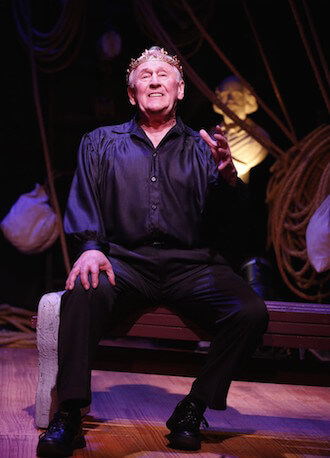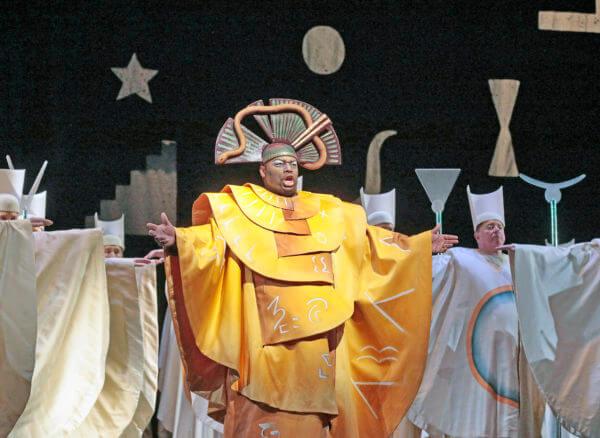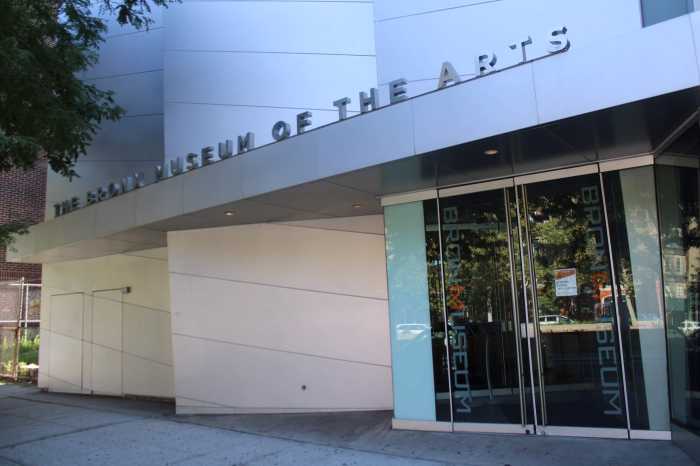Whenever one is lucky enough to see Linda Lavin on stage, it’s a cause for celebration. Her ability to fill a character, find nuance, and communicate with brilliant economy and precise theatricality is rare and wonderful. She is the reason –– and darn near the only one –– to go see “Our Mother’s Brief Affair” at the Manhattan Theatre Club.
In it, she portrays a woman named Anna Cantor at several stages of her life — a youngish mother, middle aged, and dying as she suffers from dementia. Lavin is consistently excellent, moving fluidly from one stage to another, as the script is not chronological. It’s a wonderful, sensitive performance of a woman whose secret life is finally exposed. Or is, perhaps, the unhinged reverie of a declining mind?
Lavin’s performance, however, far outshines Richard Greenberg’s script, which feels like an unfinished draft sorely in need of editing and cohesive structure. Greenberg’s writing, which previously has often been sensitive and insightful, in this piece is clever and intellectual but not very rich in believable humanity.
The plot putatively centers on the aged Anna, once more in the hospital on death’s door and finally deciding to spill the beans to her adult children about a decades-past infidelity. But it takes a while to get there. First we have to slog through a lot of background from the children, Seth and Abby, mostly Seth. In fact, most of the first act is expository, and Seth and Abby become literary devices rather than real characters.
Linda Lavin and Len Cariou as dazzling as always in two new shows
We learn that Anna is not a nice person, selfish and as a mother was, as Seth says, “intensely absent.” Abby feels that she was left out and is resentful. It’s fairly pedestrian sibling stuff, and it’s almost gratuitous that they are twins and gay. Nothing in the play explores those issues in adult children with any kind of seriousness or depth. It’s impossible to care about them, which is unfortunate because both Kate Arrington as Abby and Greg Keller as Seth are appealing actors. It’s difficult to watch them struggle to add dimension to sub-par material.
Case in point: the affair. When it finally comes out at the end of the long first act that Anna carried on an affair while Seth was struggling with viola lessons at Juilliard, it’s revealed that her lover was a notorious player in the Julius and Ethel Rosenberg affair. The play stops dead, the houselights come up, and we get a lecture from Seth and Anna on Cold War politics and the Rosenberg case in particular. (After “Angels in America,” one could fairly expect a playwright the Rosenberg with some measure of humility, care, even trepidation.) We are supposed to question whether or not the affair really happened or if Anna’s dementia is taking over, but the effect is heavy-handed and cerebral –– and makes for very dull theater. If that’s not enough, there’s another secret in Anna’s past that we learn about in a long monologue that Lavin performs beautifully. Silk purse though it might be, its provenance as a porcine appendage cannot be escaped.
There’s a point in the second act where the play almost gets interesting. Greenberg comes close to examining how adult children come to terms with how much they do not — and cannot — know about their parents as well as how unanswered mysteries about who the parents really were linger after death. Unfortunately, like so much else in this disappointing play, the moment dissipates into the meanderings of someone who likes to hear themself talk but who hasn’t got much to say. It’s doubly sad because Greenberg’s previous play for MTC, “The Assembled Parties,” was so rich that it only emphasizes the paucity of this effort.
Over at the St. James on Broadway, there’s a rollicking musical called “Something Rotten,” in which we learn that the musical as we know it came out of Shakespeare. Or something like that. A few blocks away on Theatre Row, there’s an energetic little cabaret show that reinforces how related Shakespeare’s iambs and Sondheim’s internal rhymes are in structure and performance. And we have no less a guide here than Len Cariou, known for his performances in “A Little Night Music,” “Sweeney Todd,” and his Broadway debut, “Henry V.”
The show, aptly titled “Broadway and the Bard,” is an 80-minute cabaret in which Cariou recounts some of his showbiz stories, presents a few monologues, and delivers a few ditties — some well known and some obscure. The conceit is that the themes drawn from famous Shakespeare speeches can be found in songs from musicals. This is not particularly revelatory and the connections Cariou makes are sometimes tenuous, but he’s not defending a thesis –– he’s putting on a show. And a very enjoyable one it is at that.
I’m a big fan of Cariou and was lucky enough to see some of his Broadway shows. If his voice has lost some of the depth and resonance of his younger years, he still knows how to deliver a song — and a monologue. His rendition of Jacques’ “Seven ages of man” soliloquy from “As You Like It” was beautifully rendered. He was equally at home in fully realized speeches from Iago, Benedick, Orsino, and Richard II — a kind of greatest hits compendium.
In his songs, Cariou’s technique is as exceptional as it ever was and the effect can be richly emotional. Particularly affecting were songs like “Love I Hear,” from “A Funny Thing Happened on the Way to the Forum,” which though written for a very young, naïve man was no less exuberant and buoyant sung by an older one. And as an older man, his versions of “September Song” and “Fear No More,” a Sondheim setting of Shakespeare, were poignant and intimate.
Cariou ends the evening on a hilariously upbeat note with Cole Porter’s “Brush Up Your Shakespeare,” reveling in its ribaldry. “Brush up your Shakespeare,” he sings, “and they’ll all kowtow.” We do with pleasure.
OUR MOTHER’S BRIEF AFFAIR | Samuel J. Friedman Theatre, 261 W. 47th St. | Tue.-Wed. at 7 p.m.; Thu.-Sat. at 8 p.m.; Wed., Sat.-Sun. at 2 p.m. | $60-$140 at telecharge.com or 212-239-6200 | Two hrs., 20 min., with intermission
BROADWAY AND THE BARD | Lion Theatre, 410 W. 42nd St. | Tue. at 7 p.m.; Wed.-Sat. at 8 p.m.; Sat. at 2 p.m.; Sun at 3 p.m. | $72.25 at telecharge.com or 212-239-6200 | One hr., 20 mins., no intermission






































